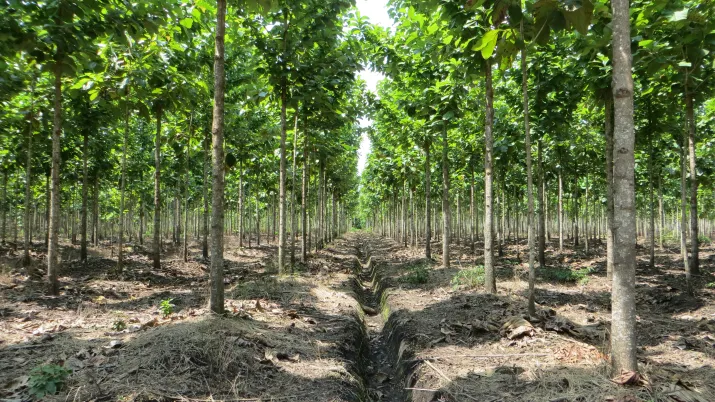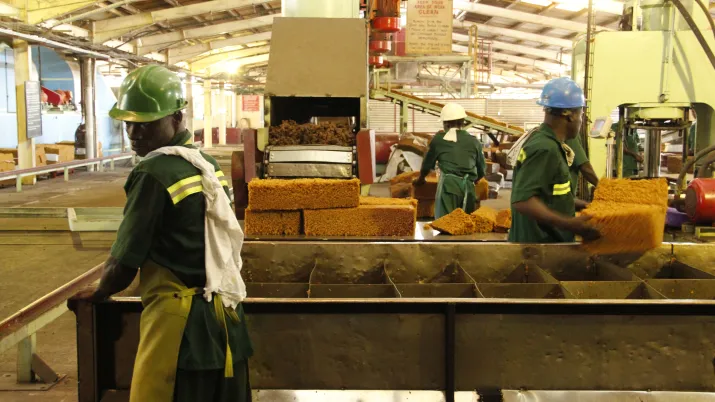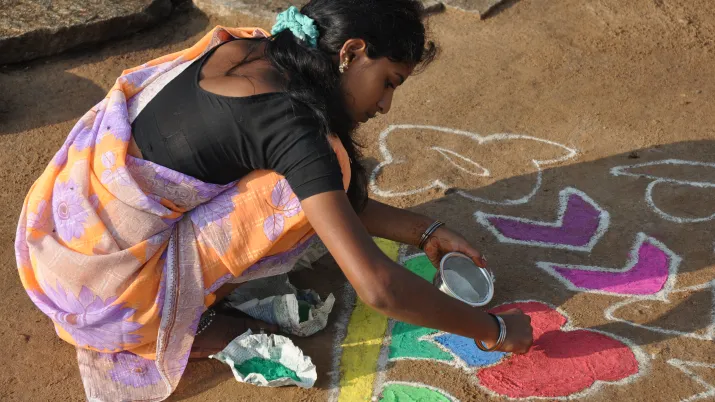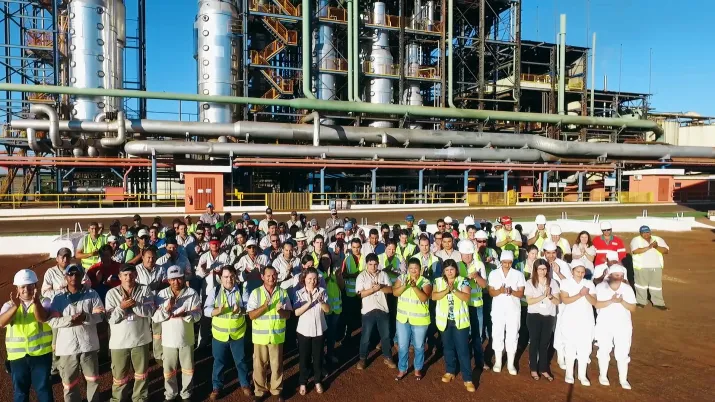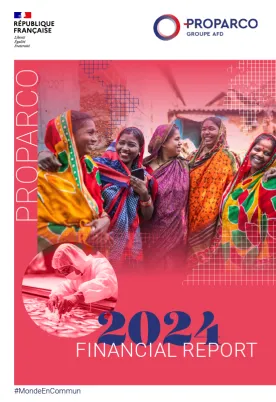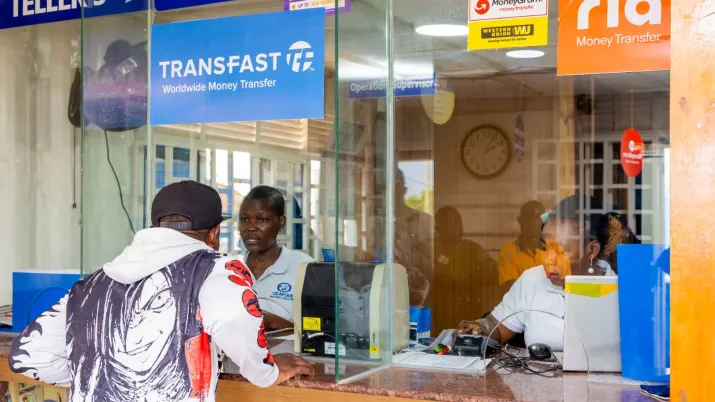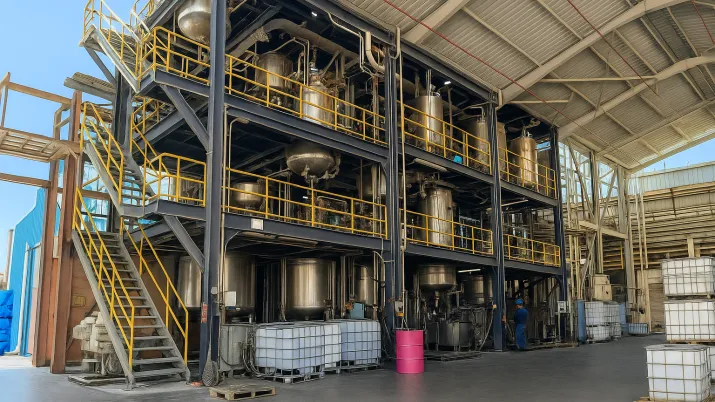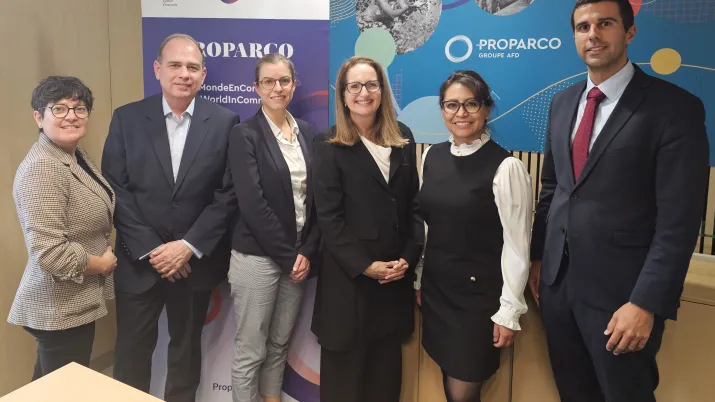Search results
Frontier II
rontier Energy II is a fund investing in renewable energy projects in the development or operation phase in East Africa. This equity investment in the fund will increase the share of renewable energy...
Project
GarantiBank
In Turkey, Garanti Bank wants to further increase its involvement in financing wind and solar projects. Proparco is helping it achieve its objectives, in particular by supporting small-capacity solar...
Project
GEMHOLD
All Gemhold Group’s plantations are FSC-certified and the group is continuing to develop in South and Central America. By supporting the group, Proparco is contributing to the creation of a certified...
Project
Green Watts
By supporting the commissioning of a wind power plant in Jordan, Proparco is contributing to diversifying its energy mix and transferring a sustainable technology.
Project
GREL
Proparco is supporting the development of GREL’s rubber outgrower plantations in Ghana and the increase in its processing capacity. The planned doubling of production will provide sustainable incomes...
Project
GROUPE ORABANK
Orabank is a private banking group managed by Oragroup, a holding company based in Lomé. It operates in 12 West and Central African countries. PROPARCO’s support aims to strengthen the group’s long-te...
Project
Growth catalyst partners 2016 2020
The Growth Catalyst Partners fund mainly focuses on financial inclusion in India. In addition to its equity investment, PROPARCO is cofinancing a technical facility to help professionalize beneficiari...
Project
GUARANI
The Brazilian company Guarani is located in the State of São Paulo. It aims to improve its sugar, ethanol and electricity production. It is making major investments for this purpose in the agricultura...
Project
Guaranty Trust Bank
Proparco is supporting the medium and long-term lending activity of Guaranty Trust Bank in Nigeria. The bank finances Nigerian companies – in a context where long-term resources in foreign currencies...
Project
Ukraine Phoenix Tech Fund Announces the Approval of Major Commitments from Bpifrance, Proparco, EIB, Henri Seydoux
Ukraine’s tech sector continues to build, scale, and attract global attention even in the face of war. The launch of Ukraine Phoenix Tech Fund (UPTF), an early-stage €50 million venture capital fund,...
News
Published on
Proparco joins forces with DFIs to support Banco Sudameris’ ambitions in green finance and women’s entrepreneu...
Together with DFIs FinDev and JICA and two commercial banks - Banco Finantia and the Commercial Bank of Dubai - Proparco is contributing USD 75 million to a USD 370 million syndicated loan arranged by...
News
Published on
Proparco and Golomt Bank partner for the first time in Mongolia to finance local SMEs and climate projects
As part of a USD 150 million loan syndicated by IFC, Proparco is participating alongside the impact fund BlueOrchard in its first financing operation with Golomt Bank. With a USD 30 million contributi...
News
Published on
Proparco and Planet Solar support the development of solar power plants in Sierra Leone
After its initial investment in Planet Solar in 2023, Proparco has provided an additional €390 000 to Planet Solar, a Sierra Leone-based company to support grid connection for the local community. Thi...
News
Published on
Proparco and the Grameen Crédit Agricole Foundation are supporting financial inclusion in Uganda
With the support of the French Ministry for Europe and Foreign Affairs, Proparco is providing technical assistance to support the second phase of a project implemented by the Grameen Crédit Agricole F...
News
Published on
FHP fund II
FHP II supports non-institutionalized Indonesian companies with high growth potential. One of PROPARCO’s aims in participating in this fund is to strengthen the development of capital markets in the c...
Project
SPE Capital, Proparco and Amethis Invest in Delta Holdings
A consortium of investors comprising SPE PEF III (SPE Capital), Proparco and Amethis MENA Fund II (Amethis) has invested in Delta Holdings B.V. (Delta Holdings), a prominent manufacturer of specialty...
News
Published on
Grupo Promerica advances regional sustainability strategy in Costa Rica
Reinforcing its deep-seated commitment to sustainable development, Grupo Promerica, one of the largest financial groups in Central America, is highlighting a new milestone in its longstanding partners...
News
Published on
Banco Atlantico Europa rejoint le programme Trade Finance de Proparco
Proparco’s trade finance guarantee program is expanding its network. Banco Atlantico Europa (BAE), a financial institution renowned for financing trade between Europe and Portuguese-speaking African m...
News
Published on



